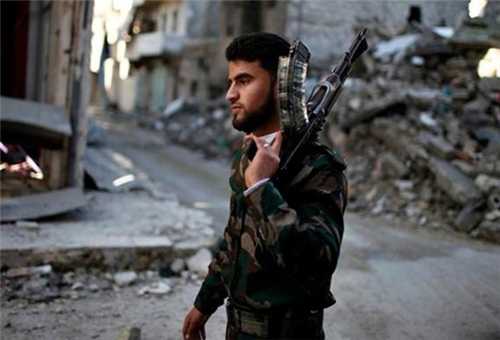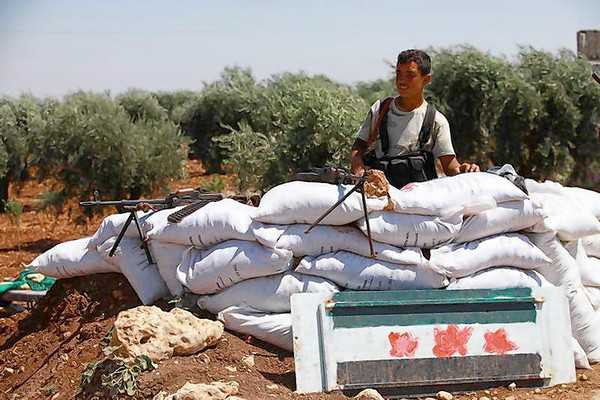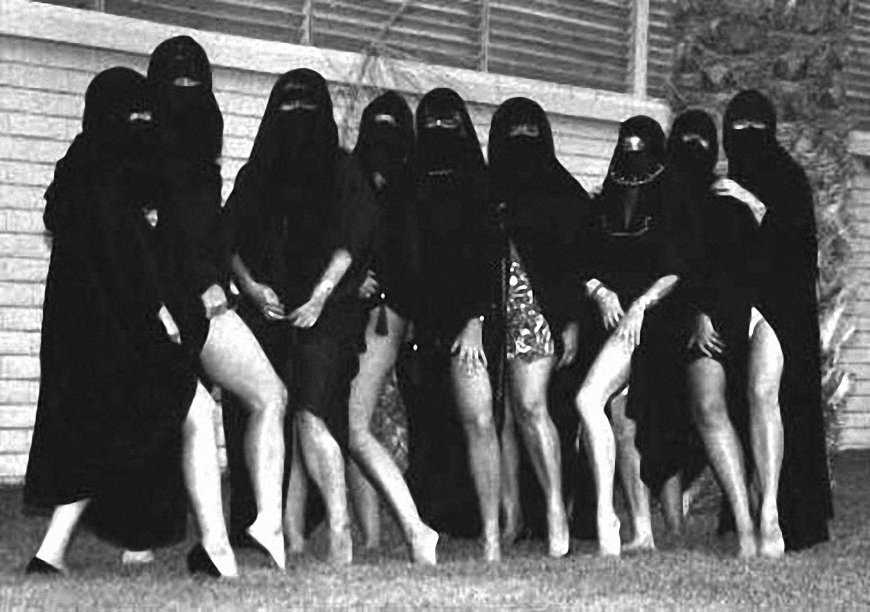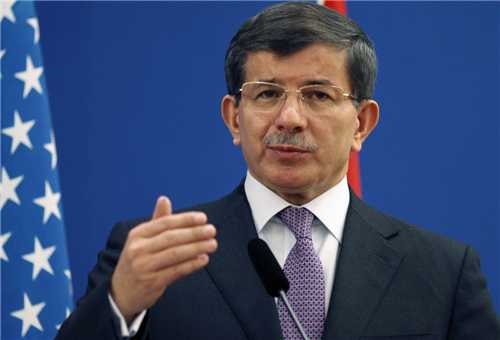Daily Press Briefing – March 24, 2014
03/24/2014 06:57 PM EDT
Marie Harf
Deputy Spokesperson
Daily Press Briefing
Washington, DC
March 24, 2014
QUESTION: Do you have a comment on the downing of a Syrian jet apparently —
MS. HARF: Yes.
QUESTION: — in the Syrian airspace yesterday by the Turkish?
MS. HARF: Well, obviously, we’ve been following the issue closely. We have been in close contact with our Turkish counterparts – I would remind you, NATO allies – regarding the incident. We are committed to Turkey’s sovereignty and territorial integrity. We note that the Turkish Government has been fully transparent about the rules of engagement it is operating under since the Syrian Government shot down a Turkish aircraft in 2012. The Turkish Government in this case said its forces only fired after the Syrian military aircraft violated Turkish airspace and after repeated warnings from Turkish authorities. Obviously, the Government of Turkey is looking into the incident more, but we are talking to them and will remain in contact with them.
QUESTION: So to the best of your information, do you have any independent information that it was actually shot down over Syrian airspace or Turkish airspace?
MS. HARF: Where it was actually shot down, I don’t have specific information about that, but as I said, the Turkish Government said it only fired on the aircraft after it violated Turkish aircraft – or, excuse me, airspace, and was repeatedly warned by the Turkish Government not to do so.
QUESTION: Are you concerned that any escalation might involve all other NATO allies, considering that you have some sort of a pact with Turkey?
MS. HARF: Well, I think it’s a little soon to sort of take this more broadly. I would note that I don’t think Turkey has asked for anything yet in terms of NATO. Obviously, we’re talking to them about how to move forward here, but again, I think it’s too soon to sort of draw broader characterizations about what might happen next.
QUESTION: And finally, Brahimi said that he doesn’t see Geneva II reconvening anytime soon. Do you have any comment on that?
MS. HARF: Well, we have obviously been working with the special representative quite closely. We want – all want Geneva – the Geneva process, I would say, to reconvene when we can make progress. And up until this point, we’ve seen the Syrian regime not come to the table as a party that wants to make progress here. So I know he’s working on it to see if and when we can reconvene this and how, to see if we can move this diplomatic process forward.
QUESTION: So you said that Turkey has been fully transparent about the rules of engagement? What does that mean, exactly?
MS. HARF: That it has operated under since the Syrian Government shot down a Turkish aircraft in 2012.
QUESTION: Right, but —
MS. HARF: So I think what it means, without knowing all the specifics here, is that, for example, it repeatedly warned —
QUESTION: Yeah.
MS. HARF: — the Syrian aircraft not to violate its airspace. It only then took action. That’s what I think rules of engagement refers to here.
QUESTION: Right. Right. But the rules of engagement, are they public? You don’t have —
MS. HARF: I can check.
QUESTION: Is that what that means in terms of —
MS. HARF: Or do we mean transparent with the United States? I don’t know.
QUESTION: Well, transparent – I mean, maybe you’d like to see —
MS. HARF: I’ll check.
QUESTION: — the Turkish Government tweet the rules of engagement or perhaps put them on Facebook or YouTube or something like that.
MS. HARF: I would note here that there have been more tweets from Turkey since the government blocked it than there were before.
QUESTION: So can we just —
MS. HARF: Which is an interesting, I think, signal to people that try to clamp down on freedom of expression that it doesn’t work and isn’t the right thing to do.
QUESTION: Are you helping in this?
QUESTION: So —
MS. HARF: Hold on. We’ll – let me finish Matt.
QUESTION: So do you have any additional comment on the Twitter ban? When Erdogan announced that he was going to do this, he said now every – he didn’t care about international reaction and now the world would see the power of the Turkish Republic.
MS. HARF: Well, I think what the world saw was the number of people inside Turkey tweeting about what they thought about it being blocked there.
QUESTION: Well, could I ask you what you think —
MS. HARF: Yes.
QUESTION: — about the power of the Turkish Republic since they have failed so dramatically to enforce this ban?
MS. HARF: We have conveyed our serious concerns over this action directly to Turkish authorities, both from here and on the ground. Obviously, we support freedom of expression in Turkey and everywhere else. We oppose any action to encroach on the right to free speech, and continue to urge directly the Turkish Government to unblock its citizens’ access to Twitter and ensure free access to all social media platforms —
QUESTION: Right, but —
MS. HARF: — so they can see what you and everyone else tweets.
QUESTION: Right, but what does it say to you, if anything, about the power of the Turkish Republic?
MS. HARF: In what respect?
QUESTION: The fact that they’ve tried to ban it and it hasn’t worked. I mean, is this the kind of thing that you want to see a NATO ally doing or boasting about —
MS. HARF: No.
QUESTION: — beforehand, and then —
MS. HARF: No.
QUESTION: — failing miserably at it?
MS. HARF: Well, the second part – clearly, we think it’s good that people inside Turkey are still able to express themselves, but that doesn’t mean that it should be blocked. I wasn’t trying to give that statistic —
QUESTION: Okay.
MS. HARF: — in terms of saying that it’s an acceptable action.
QUESTION: So you’re —
MS. HARF: No, clearly this is not an action we think the Turkish Government should take. We’ve told them that directly. We will continue to tell them that directly. There’s no place in a democracy for this kind of clamping down on people’s right to free speech. There’s just not.
QUESTION: Okay. And so you would encourage people in Turkey to defy – to continue to defy the prime minister’s ban. Is that —
MS. HARF: I’m not going to go that far, but I – what I will say is it’s important for people all over the world to hear what the Turkish people have to say.
QUESTION: Do you see any connection between the Twitter issue and the downing of the plane, the Syrian plane, perhaps that Mr. Erdogan is trying to export his —
MS. HARF: Not at all.
QUESTION: — local issues? You don’t see that?
MS. HARF: Not at all. No, not at all.
QUESTION: Are you helping the Turks in breaking the blockade?
MS. HARF: Is the United States Government?
QUESTION: Yeah.
MS. HARF: No, not to my knowledge. We’ve been in contact with Twitter and with the Government of Turkey about this, but to my knowledge, no, we are not. But we’ve said very clearly to the Turkish Government that this is not acceptable and that we do not think they should be able to block their citizens’ access to these kind of social media platforms.
QUESTION: Mm-hmm. And —
QUESTION: Just to clarify, Marie, you – I asked this question last week, that whether United States Government is involved with this case in the —
MS. HARF: With Twitter?
QUESTION: In this dispute between the Twitter and the Turkish Government in terms of the legal process, and you said no. Still the case? Still —
MS. HARF: Well, I don’t think I said no; I think Jen said no. But we saw over the weekend, I think, some more actions being taken, right? So I’m not sure exactly how you asked the question last week, but what I can say is that we have been in contact with Twitter and separately with the Government of Turkey to talk about the fact that people should not have their access blocked to Twitter.
QUESTION: So it is a legal dispute right now, and that maybe – I mean, Turkish Government is pursuing this ban, and they took several additional measures during the weekend to stop the people to use Twitter, like DNS ban, et cetera.
MS. HARF: Which we think is an encroachment on their citizens’ freedom of expression, and we don’t think that it should be continued.
QUESTION: You are in contact with the Twitter in terms of legal dispute or —
MS. HARF: I’m not say in terms of any – I don’t know the legal – the specific legal aspect you’re referring to. We are in touch with Twitter, yes, broadly speaking. I don’t know exactly what that contact is like, but I don’t know if the legal – if that’s an internal Turkish matter, I’m not exactly sure, but we’ve been in contact with both Twitter and the Turkish Government.
QUESTION: I mean, because Twitter is represented by the lawyers right now in Turkey, and there will be maybe case against —
MS. HARF: I don’t have more details on any legal action that may or may not be happening in Turkey. I just don’t have those details. What we’ve said is separate and apart from that. People should be able to express themselves freely, whether it’s on Facebook or Twitter or whatever – Flickr, Tumblr, whatever people want to use – and that governments should not encroach on their – they shouldn’t block access for their citizens to do so. I don’t have a lot more information.
QUESTION: Yeah, but —
QUESTION: What about Instagram?
MS. HARF: And Instagram too.
QUESTION: Yeah, the problem —
QUESTION: Not Instagram.
QUESTION: Not – (laughter). Don’t play favorites now, Marie.
MS. HARF: I am not. I am not on Instagram, but —
QUESTION: The problem, the Turkish Government is trying to get some information about some users, specific users who are tweeting against the government and —
MS. HARF: What I’m saying is that we oppose the Turkish —
QUESTION: And the Twitter – and my question – okay. My question is —
MS. HARF: Yes.
QUESTION: — Twitter assured to Turkish Twitter accounts users that they will not disclose any private information.
MS. HARF: That would be a question for Twitter, not for me.
QUESTION: Yeah. But are you supporting this stand of Twitter against Turkish Government?
MS. HARF: That’s not something that I should take a stand on. I don’t think that’s something that the company, Twitter, can decide on its own.
QUESTION: Because —
MS. HARF: What we have said is that governments should not block access for their citizens.
QUESTION: Yes. But at the same time it’s a privacy question – not only freedom of expression, but the people are also trying to protect their privacy —
MS. HARF: Again, that a question that’s —
QUESTION: — and the Turkish Government is trying to get the information of all of the users.
MS. HARF: That’s a question, I think, is better addressed to Twitter, who controls that issue. What I am saying is people’s freedom of expression should not be blocked by their own government.
QUESTION: So no comment about the privacy?
MS. HARF: I don’t have more for you than this – for you on this case than that.
QUESTION: Okay.
MS. HARF: I’m happy to check with our folks and see if there’s more.
QUESTION: Right.
MS. HARF: I just don’t think I’ll have more.
QUESTION: Okay. Thank you. Please.
And another question about the jet incident.
MS. HARF: Yeah.
QUESTION: Are you concerned that this confrontation between Turkey and Syria can turn into a more broader confrontation just before the elections, because —
MS. HARF: Well, I think that’s the question Said just asked, and what I said was it’s a little too early to make sweeping characterizations about what may come from this. Obviously, we know there was a situation here where the Turks repeatedly warned the Syrians before taking action. I don’t think I want to probably draw broader conclusions about what will happen going forward.
QUESTION: No, I’m – my question wasn’t related NATO that Said asked in terms of the NATO involvement. Beyond the NATO involvement, are you encouraging the parties to deescalate the tension?
MS. HARF: I mean, we’re certainly in contact with the Turkish Government here on this issue. I’m not – I mean, in terms of the parties, you’re talking about the Assad regime?
QUESTION: No, the parties – NATO ally, Turkey. Because there will be an election this week —
MS. HARF: Right.
QUESTION: — and the main —
MS. HARF: I’m not seeing the connection here.
QUESTION: The main opposition party urged to not do any military intervention, military – I mean, unilateral military action against Syria just before the election, to use a populist tool just before the election. So this is the concern of the main opposition party and other parties in Turkey.
MS. HARF: I think I probably don’t have much comment on internal Turkish politics or how they may or may not respond —
QUESTION: It stirs an international crisis.
QUESTION: Well, are you encouraging the Turks to kind of remain calm and not escalate the situation?
QUESTION: Yes.
MS. HARF: I’m not sure how they – I mean I’m not sure there’s even talk of escalation here. I’m happy to check with our folks and see. To my understanding, it was a limited situation. I haven’t heard that there is escalation here.
QUESTION: Is —
MS. HARF: I’m happy to check with our team. We’re still talking to the Turks to get the facts about what happened here, but I, quite frankly, haven’t heard talk that people are worried about that.
QUESTION: So – because my question is related to another religious site within Syria belonging to Turkey. This is a Turkish territory, 35 kilometers from Turkish broader within Syria, and it’s under threat some groups, ISIS and other radical al-Qaida-affiliated groups. And some cabinet members, Turkish cabinet members, even urged not to do anything to provoke Turkey for any unilateral military action, for example. This is another concern for Turkey to be part of the unilateral military action within Syria. So only – not only the jet, but this is another risk for Turkey to involve with Syria in terms of this kind of military action.
MS. HARF: Well, I don’t have any, in terms of that specific question, any details for you on that. Again, I think I’ll let the Turkish Government speak for what their response will or won’t be here. As I said, we’ve talked to them, we’ve gotten the facts of what’s happened here, and if there’s more to share tomorrow, I’m happy to.
QUESTION: Marie, a question that is on Syria.
MS. HARF: Mm-hmm.
QUESTION: There are report that 600,000 Syrians have applied for asylum in Europe and the United States. Could you tell us the portion of that that is being sought with the United States?
MS. HARF: I don’t know the answer, Said. Let me check with our folks and see. I don’t have the numbers.
QUESTION: Just one more question on the Syrian jet.
MS. HARF: Uh-huh.
QUESTION: You said we’ve established the facts and multiple warning were issued, I guess.
MS. HARF: Mm-hmm. By the Turkish Government.
QUESTION: How – yeah. How did you establish that? Did they share any information with the State Department?
MS. HARF: The Turkish Government?
QUESTION: Yeah.
MS. HARF: With the United States Government they did. I don’t know if it was us or with the Defense Department, but —
QUESTION: Yeah. But they shared, like, intelligence information about the incident?
MS. HARF: I don’t know if it’s intelligence they told us. They warned the Syrians multiple times. I don’t know the details of exactly what that —
QUESTION: Yeah. But how did you verify what they actually conveyed to you?
MS. HARF: I can check with our folks and see.
QUESTION: Were you in touch with them in real time during the incident?
MS. HARF: I don’t know. I’m happy to check. It might be – and it might be the Department of Defense, but I’m happy to check with them.
QUESTION: So did you —
MS. HARF: I just don’t know.
QUESTION: Did you say that these pieces of information were verified, or you’re not sure?
MS. HARF: We have no reason to believe that it’s not accurate, correct. Yes.
QUESTION: Okay. But —
MS. HARF: And I’m happy to see if there are more details about how we verified it, correct.
QUESTION: I wanted to ask one more.
QUESTION: No, no. One more on Syria.
MS. HARF: Uh-huh.
QUESTION: News reports said that the U.S. Administration has finished its review on its policy towards Syria and decided not to intervene militarily and not to provide the opposition with sophisticated arms and not to allow Saudi Arabia to provide this kind of arms.
MS. HARF: I’m not sure those reports are true. I haven’t seen them, but I haven’t heard those reports. In terms of the first, we’ve always said all options except for boots on the ground are on the table. Happy to check with our team, but it’s my understanding, as we’ve talked about in here, that this is an ongoing discussion of what policies we should undertake in Syria. I’m happy to check and see if there’s been some decisions made, but to my knowledge there haven’t been.
QUESTION: Is there any review?
MS. HARF: As I said – we went over this, I think, ad nauseam one day, but there’s constantly a review of our policy in Syria. We are constantly looking at options, what we could do, what more we could do, how we could influence the situation. That’s ongoing, yes. But to my knowledge, there hasn’t been some sort of major decision on what we will or won’t do.
QUESTION: Can you check on this, please?
MS. HARF: I’m happy to.
QUESTION: Thank you.





